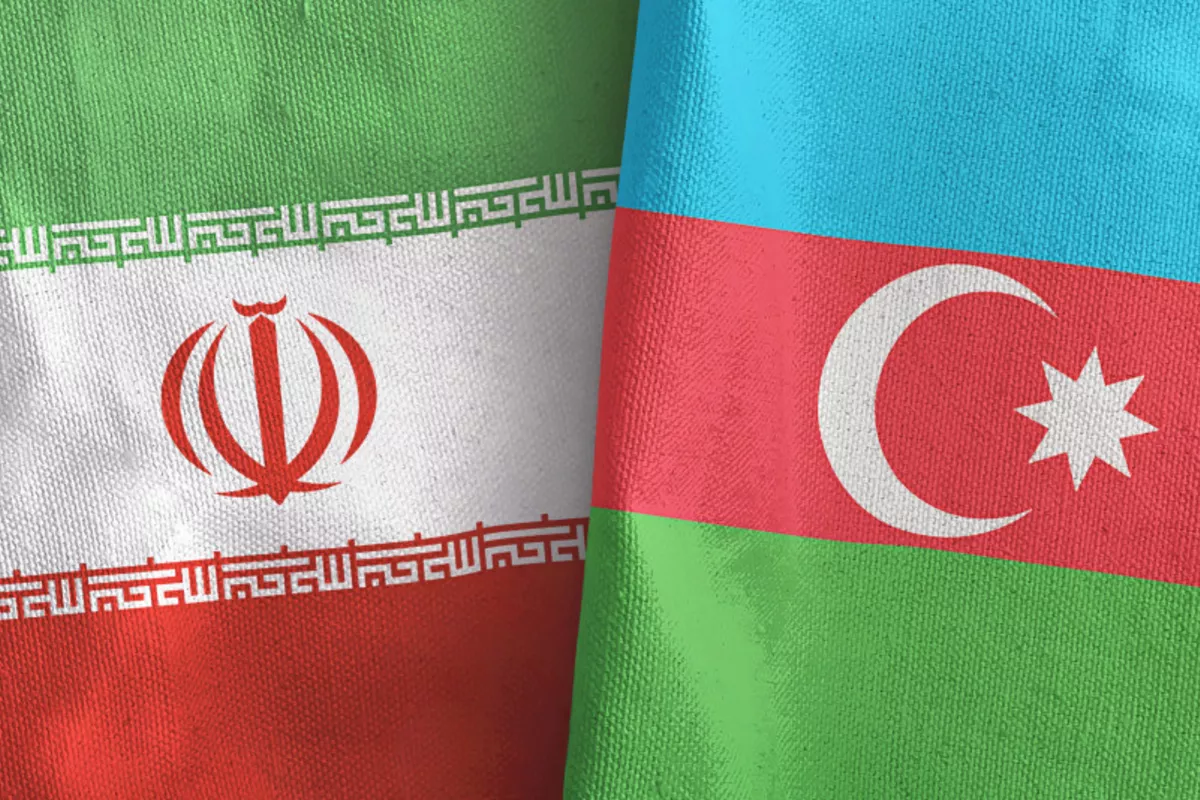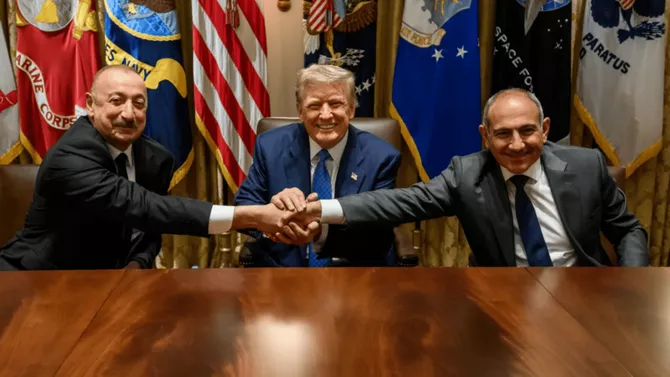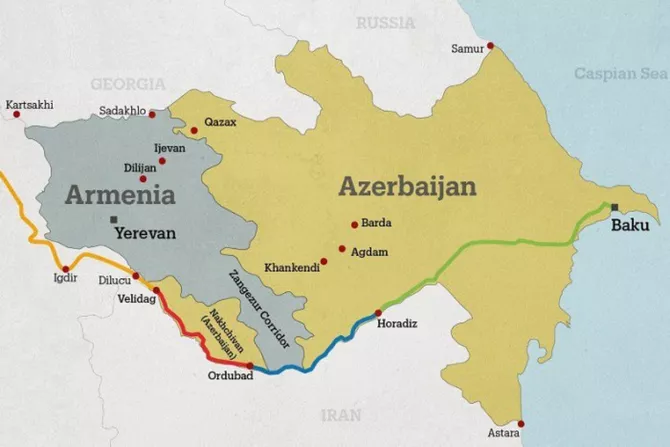
The election of Donald Trump as President of the United States marked a turning point in global politics. After the failed tenure of the 46th president, during which the nation’s economic, military, and political power steadily slipped away and wars erupted one after another across the globe, the international arena finally entered a long-awaited period of gradual calm and the restoration of Washington’s authority as a global power.
From 2020 to 2023, after the military phase of the conflict between Azerbaijan and Armenia had ended, endless negotiations over a peace treaty and the unblocking of transport corridors dragged on without result. Mediators in Brussels and Moscow failed to find a common platform to bring the parties closer together.

The breakthrough came when 47th U.S. President Donald Trump - a leader who had only recently helped end protracted conflicts between India and Pakistan, Thailand and Cambodia, and, in cooperation with Israel, curb Iran’s nuclear ambitions during a 12-day war - took the matter into his own hands.
Tehran was caught completely off guard when, on August 8, the leaders of Armenia and Azerbaijan signed a preliminary peace agreement in the White House - in Trump’s presence.
For nearly three decades, Iran had staunchly supported Armenia’s expansionist policy, aiming to weaken Azerbaijan. Yet Yerevan ultimately turned its back on its long-time ally, a country that, in the early years of Armenian independence, had spared it from famine by supplying fuel and food.
The “Trump Route” and a New Communications Framework
In Washington, the parties agreed to dissolve the OSCE Minsk Group and create, in Armenia’s Syunik Province, the “Trump Route for International Peace and Prosperity” - an analogue of the so-called Zangezur Corridor that will link mainland Azerbaijan with the Nakhchivan Autonomous Republic and Türkiye.
The very name of the route - which will bear the name of Iran’s principal adversary for 99 years - has already provoked quiet outrage in Tehran.
The signing of the final peace treaty has been postponed for now: Baku is insisting that Armenia amend its constitution, which still contains territorial claims against Azerbaijan. However, this is viewed as only a matter of time - the process is already in motion.
The U.S. Position and Key Agreement Details
For Iran’s leadership, news of the preliminary agreement came as a complete surprise - a clear indication of an intelligence failure.
Trump stated:
“My administration has been engaging with both sides for quite some time. The United States will sign bilateral agreements with Armenia and Azerbaijan on the joint development of economic opportunities so that we can fully unlock the potential of the South Caucasus region. This will be a historic day for Armenia, Azerbaijan, the United States, and the entire world.”
According to Reuters, the U.S. has secured the rights to operate the Zangezur Corridor through Armenia’s Syunik Province - a 42-kilometer stretch of road along the Iranian border linking Azerbaijan to Nakhchivan and onward to Türkiye.
Washington will receive 40% of the revenues generated by the route, while deploying at least a thousand private American military contractors to guard and oversee it. Reports suggest these personnel will be armed not only with small arms but also light armored vehicles.

Under the project, Azerbaijan will gain unrestricted movement of goods in both directions through Armenian territory - without Armenian oversight or even information on the nature of the cargo. Armenian border guards and customs officials will be excluded from the process entirely.
Additionally, the United States has lifted its previous restrictions on military cooperation with Azerbaijan and plans to supply Baku with products from its defense industry - a development that understandably alarms Tehran.
Iran’s Reaction and Geopolitical Concerns
In Tehran, Azerbaijan is still viewed as “illegally detached territory,” and there is deep concern over the prospect of NATO’s increased influence in the region and the spread of Western democratic values into the country. It is for these reasons that Iran has vehemently opposed placing the Zangezur Corridor under American control.
Ali Akbar Velayati, senior adviser to the Supreme Leader of Iran, declared:
“Iran will prevent the creation of an American corridor in the Caucasus region. Such a corridor will become a platform for President Donald Trump’s mercenaries and will not be a route belonging to the American president.”
He stressed that the project poses a threat to South Caucasus security, could trigger border changes, and may lead to Armenia’s disintegration. According to Velayati, NATO countries - including Türkiye - intend to use the corridor to weaken Iran-Russia cooperation and establish a presence in the Caspian region.
Velayati once again put forward an alternative: Azerbaijan could use Iranian territory to connect with Nakhchivan, thereby avoiding any foreign presence. He warned that the project would cause major geopolitical shifts in Iran’s border regions, and that Tehran had every right to defend its interests to the fullest extent.
Domestic Risks for Iran
For Iran’s ruling establishment, the “Trump Route” represents a nightmare scenario coming to life. Tensions are already flaring in the country’s ethnic peripheries: Sunni Baluch in Sistan and Baluchestan Province, Kurdish groups, and others have become more active.
The arrival of Americans - even on a small section of Iran’s border - will pose real challenges for the ayatollahs’ grip on power. This is the direct outcome of years of confrontation between Iran and its neighbors, who no longer fear the supposed might of what was once the region’s dominant power.
As for Tehran’s threats against the planned corridor, it is unlikely that a weakened Iran is in any position to mount serious resistance to its implementation.
Share on social media